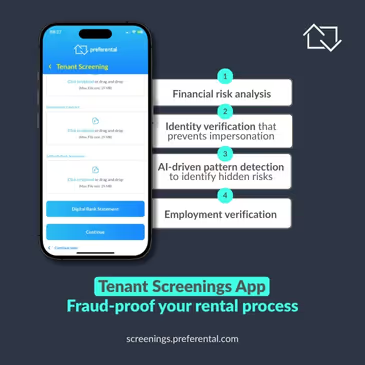Think Before You Sign: 7 Step Smart Guide to Renting with Friends or Partners
Top 3 Takeaways:
- Avoid future disputes by having a clear, written rental and financial agreement from day one.
- Both tenants can be held fully liable for the rent and damages—know what you’re signing up for.
- Prevent tension with agreed house rules and documented responsibilities to ensure peaceful co-living.
Introduction
Renting a home with a friend or partner can be an exciting step and a savvy financial move. Splitting rent and expenses often makes it possible to live in a more desirable area or larger property than you could afford alone. But what starts as a dream can turn into a nightmare without proper planning and legal clarity.
According to Seeff’s rental experts, entering a co-rental agreement without setting clear boundaries, responsibilities, and expectations is one of the most common pitfalls and it’s easily avoidable. Here's how to do it the right way.
7 Steps to Renting Responsibly with a Friend or Partner
1. Decide who signs the lease
Only those listed on the lease are legally responsible. You can sign jointly, or just one person—just know what that means. If only one person signs, they carry full legal responsibility.
2. Understand joint liability
If both of you sign, most leases include a “joint and several liability” clause. This means each person is responsible for the entire rent and any damages, regardless of who caused the issue.
3. Include an early termination clause
Protect yourselves with a written clause that covers what happens if one person leaves early, how to handle the deposit, find a replacement, and update the lease.
4. Confirm rules about subletting
Most landlords do not allow subletting. If only one person signs, get written permission from the landlord to have a roommate or partner move in.
5. Define financial responsibilities clearly
Agree upfront on how expenses will be split: rent, deposit, utilities, Wi-Fi, household supplies, etc. Put it in writing and set up a shared payment tracker or spreadsheet to avoid confusion.
6. Set house rules
Conflict often stems from unspoken expectations. Discuss and agree on routines, cleaning responsibilities, guests, noise, and shared space etiquette.
7. Keep detailed records
Maintain proof of payments, agreements, messages, and changes to your arrangement. These records are invaluable in case of disputes—with each other or the landlord.
Plan Smart, Live Peacefully
Renting with someone you trust can make your lifestyle more affordable and enjoyable—but only if approached with clarity and caution. By agreeing on responsibilities up front, documenting everything, and understanding your legal obligations, you can avoid unnecessary stress and conflict.
Advice forward
Treat your rental arrangement like a business partnership - friendly, but formal. Protect the friendship or relationship by getting the details right from the start.













.avif)


.avif)

.avif)




.svg)





























.avif)
